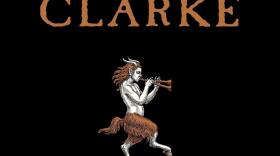Vikki Valentine
Vikki Valentine is a senior supervising editor on NPR's science desk. She oversees the network's global health and development coverage across broadcast and digital platforms. Previously, Valentine was the network's climate change, energy, and environment editor and in this role was a recipient of a 2012 DuPont Award for coverage of natural gas drilling in Pennsylvania.
Valentine led a team that won a 2014 Peabody for its on-the-ground coverage of the largest Ebola outbreak in history: an epidemic in West Africa that spread to nearly 30,000 people. That coverage was also recognized by the Edward R. Murrow awards, a Pictures of the Year International's Award of Excellence, and by the Online News Association.
She was lead editor on the Gracie Award-winning series "#HowToRaiseAHuman" and "#15Girls." The 2018 series "#HowToRaiseAHuman" searched remote parts of the world and human evolutionary history for lost secrets to raising kids. The 2015 series "#15Girls" explored the pervasive and deadly discrimination girls in developing countries face.
Valentine won the 2009 National Academies Communication Award for the year-long multimedia project "Climate Connections." The series was also recognized by the 2008 National Academy of Sciences award, the Metcalf award for environmental journalism, the White House News Photographers Association awards, and the Webbys.
Prior to NPR, Valentine worked as a daily science news editor at Discovery.com and as a features editor and reporter at The Baltimore Sun. Her writing has also been published by The New York Times, National Geographic, Smithsonian Channel, Marketplace, Science Magazine, and Washingtonian Magazine.
Valentine received a master's from University College London's Wellcome Trust Centre for the History of Medicine. Her bachelor's is from the University of Maryland Baltimore County. Writing under the name V.L. Valentine, she is the author of the historical thriller, The Plague Letters, and the forthcoming Begars Abbey.
-
Clarke fans waited 16 years for this follow-up to Jonathan Strange & Mr. Norrell. Here, Clarke limns a magic that is part of the very fabric of the universe.
-
The latest installment in the Hercule Poirot franchise — now being written by Sophie Hannah — is a masterful, multilayered puzzle in which Poirot's assistant Inspector Catchpool plays a key role.
-
What happens when one person controls the fate of many? Ghastly experiments like the one Alix Nathan lays out in her new novel, about a country gentleman who aspires to scientific prominence.
-
All his life, Aniket Sathe has been taught that men rule the world. He lives in India, one of the worst countries for women. Now a new class is changing his attitude.
-
Nimmu attends the Veerni boarding school in Jodhpur, India. The grade she gets on a national exam this year will decide her future.
-
Arthritis, bunions, knee pain and shin splints; it's a pernicious group of injuries that frequently conspires to keep runners off the road. Dr. Mark Cucuzzella and Danny Dreyer, founder of the ChiRunning method, answer your questions about how to make running work for you.
-
It's allergy season and your head is pounding, what do you take? Tylenol Sinus, Advil or Imitrex? And what's a vegan with migraine to do? Johns Hopkins Neurologist David Buchholz answers your questions on migraine and its nefarious symptoms.
-
Legislators say that by providing every Massachusetts resident with health insurance, the costs of health care are actually lowered. A look at how the bill would affect employers and individuals.
-
Republican and Democrat lawmakers on Capitol Hill are calling for a halt to a deal that hands over operations at six U.S. ports to a company owned by Dubai. President Bush threatened to veto any legislation seeking to delay the $6.8 billion takeover. A look at why the transaction is so controversial.
-
In 1953, an Oklahoma physician and amateur astronomer photographed what he believed was an asteroid crashing on the moon. No one believed him. Decades later, research from NASA suggested he was right.





